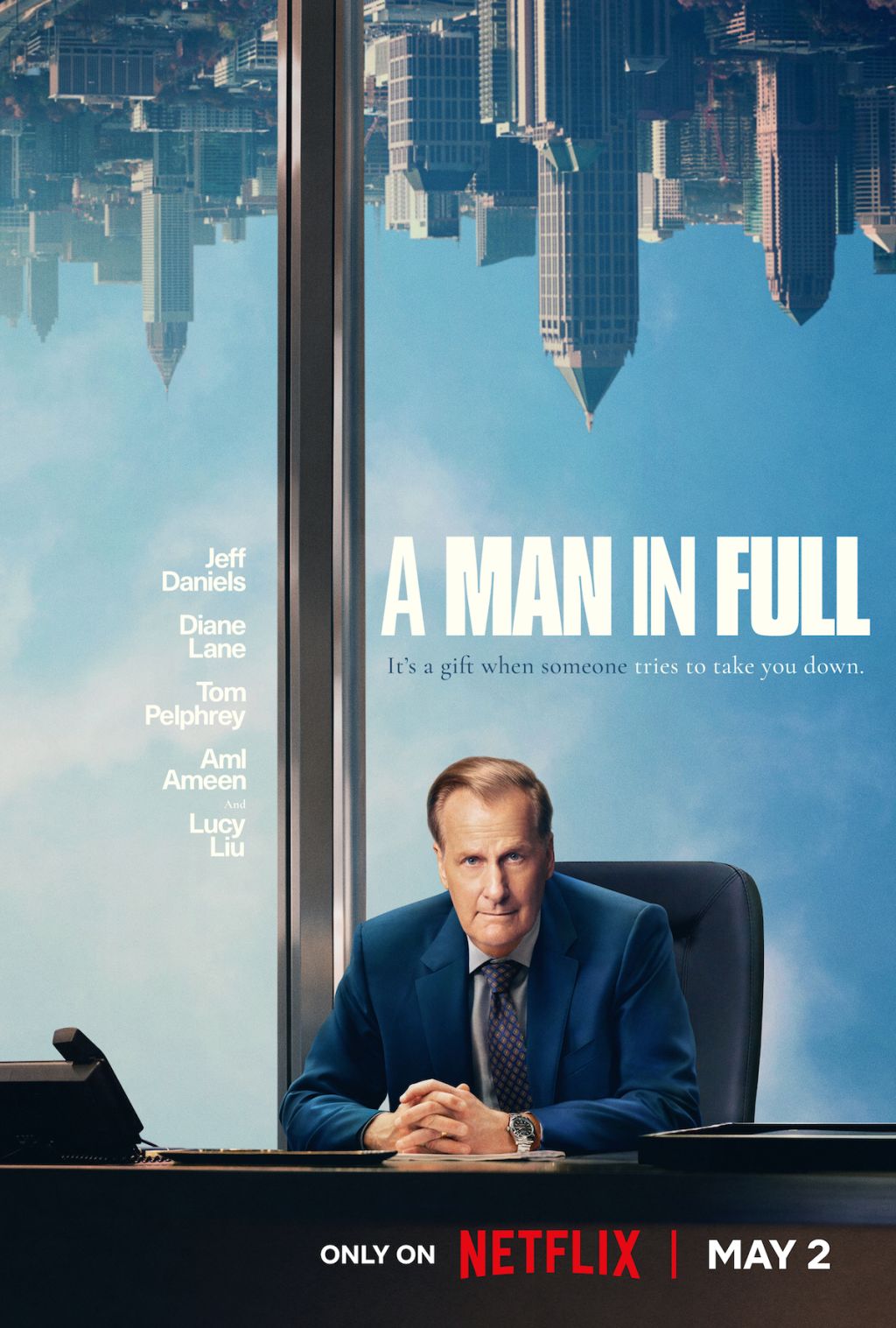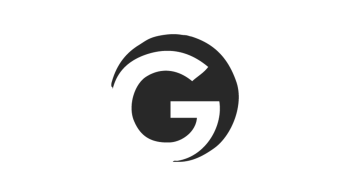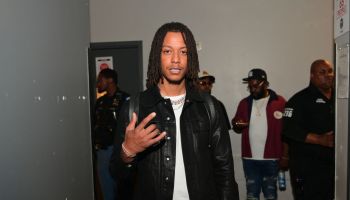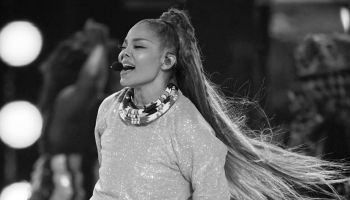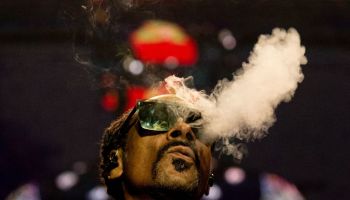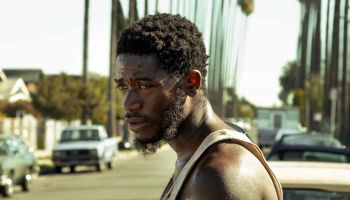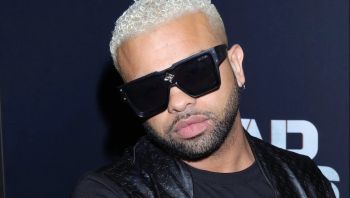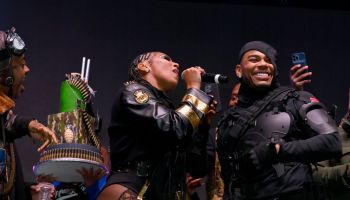The summer of 2014 was arguably one of the most transformative in recent history — the nation saw a resurgence of resistance against injustice and police brutality following the death of a number of unarmed black people at the hands of law enforcement and, as a result, electrified a movement that doesn’t seem to be slowing down any time soon.
But that eruption of protests, lead not by one, but a collective of young people joining efforts to make effectual change in their communities, has been largely covered in the media monolithically — a move that funnels the frustrations of black America into one pocket of state violence without addressing the larger, systemic issue of white supremacy and its symptoms.
That was in 2014. In 2015, activists and organizers from black liberation groups across the nation are saying no more. In the days leading up to President Barack Obama’s State of the Union address, organizers gathered to discuss a pressing issue of their own — the current state of black America. From those meetings, the State of the Black Union (SOBU) was formed.
“The movement is about fundamentally addressing racism in this country. Police brutality is certainly a big part of this, but racial terror is much bigger than the police force,” Rachel Gilmer, the Associate Director of the African American Policy Forum said.
“Addressing racism is about looking at all structures – housing, employment, education, etc – and lifting up the fact that we need to completely rebuild the system. While our movement fundamentally believes in this, some of our messaging undermines this holistic vision. We need to talk about how gentrification, the school to prison pipeline and American militarism are destroying Black communities across the globe,” said Gilmer, who was also one of the organizers who helped organize SOBU to dismantle the structural oppression of black people.
Sparked by Cherrelle Brown, an organizer with the New York Justice League, the SOBU was created to show America “the shadow of crisis has not passed.” Outlining that police brutality on black men, women, and children is just as imperative of looking at the other symptoms of black life in America, the group, many of whom belong Black Lives Matter, Millennial Activists United, Trans Women of Color Collective, Malcolm X Grassroots Movement, Dream Defenders, Black and Brown People Vote, Million Hoodies Movement for Justice , the African American Policy Forum, Black Alliance for Just Immigration, ThinkMoor, Unchained, BYP 100, Freedom Side, Ohio Students Association, Hands Up United, and the Organization for Black Struggle, composed a list of statistics about black life that are hard to ignore.
- The median wealth for single White women is $42,600. For Black women, it’s $5.00.
- The infant mortality rate for Black mothers is more than double that of White mothers, due to factors like poverty, lack of access to health care, and the physiological effects of stress caused by living under structural oppression.
- 22 states have passed new voter restrictions since 2010, disenfranchising as many as 34 million Americans, most of them Black.
- In cities across the country, profit-driven policies fuel displacement and gentrification, leading to the destruction of entire Black communities.
- Blacks and Latinos are about 31 percent of the U.S. population, but 60 percent of the prison population.
- In our country 1 in 3 black men will be incarcerated in his lifetime, and Black women are the fastest growing prison population.
- The life expectancy of a Black trans woman is 35 years. The average income of a Black trans person is less than 10K. Trans people are denied jobs, housing and healthcare just for living in their truths.
- It is legal in many jurisdictions to fire LBGT people from employment and deny them access to healthcare and housing. (read more at BLACKLIVESMATTER.COM)
But as disheartening and alarming as those statistics are, President Obama all but failed to mention the state of black communities during his address. Mentioning the numerous protests that occurred in Ferguson after Michael Brown Jr. was shot dead by Officer Darren Wilson, Obama largely glossed over the efforts of activists nationwide to address the state violence that leaves a large swath of Americans disenfranchised and tormented.
“We may have different takes on the events of Ferguson and New York,” Obama said. “But surely we can understand a father who fears his son can’t walk home without being harassed. Surely we can understand the wife who won’t rest until the police officer she married walks through the front door at the end of his shift.”
Gilmer was not surprised by the brevity of the president’s statement.
“President Obama is the leader of a nation founded on white supremacy and the oppression of people of color, and as such, we recognize that America’s state of the union will never speak our truth,” Gilmer said.
“We also need to acknowledge and be honest with ourselves that the White House’s rhetoric around race has always been seeped in a respectability politic narrative where Black people are shamed and blamed for the conditions we live under. We’ve seen this in the White House’s remarks targeted towards protestors, where they’ve pandered to this racist, classist, conservative perception that those fighting for justice are the ones perpetuating violence, and not those, who are killing innocent, unarmed Black young people with impunity,” she said.
“The people have been marching, tweeting and shutting down highways, transit and police stations. We have built a movement, unlike anything we have seen since the Civil Rights Movement and I find it ironic and offensive, that the White House screened Selma last week, but when it comes to defending Black lives now and standing on the right side of history, the side of Dr. Martin Luther King and Diane Nash, they have said virtually nothing and remained largely neutral, referencing our movement as ‘events in Ferguson and New York.'”
Touching on the White House’s $200 million program My Brother’s Keeper — an initiative to “help young people stay on track” — Gilmer expressed her concern for the rhetoric the program propagates by “ignoring systems and instead, telling the nation that if Black men pull up their pants, and show up as fathers, it will erase the impact of centuries of systemic racism.”
“This is precisely why we decided to tell our own story, to ensure that as Black folk, we had the opportunity to speak to the conditions of our people, to reflect on the past year, and to state our vision for justice in 2015,” she said. “We knew we couldn’t rely on the White House to do this for us.”
And that also means amplifying the voices of both cis and trans Black women who are killed by police — a percentage of America’s population that is largely overlooked.
“When we perpetuate an analysis that the problem is about a particular group – Black males, and not a particular context, the experience of being Black in America generally – it undermines our argument that systemic racism is the problem,” Gilmer said.
That’s an issue the organizers hope to dismantle. According to SOBU:
“We fight in the name of Aiyana Stanley-Jones, killed by Detroit Police at the age of 7 years old, who never got to graduate from elementary school. We fight in the name of Mike Brown, who was killed by officer Darren Wilson, weeks before starting college. We fight in the name of Islan Nettles, a 21-year-old Black trans woman who was pummeled to death outside a NYC police station in Harlem. We fight in the name of Tarika Wilson, who was killed by an Ohio police officer while holding one of her babies, and will never get to embrace any of her six children again.”
“This country owes Black citizens nothing less than full recognition of our human rights. The White House’s current racial justice initiative, My Brother’s Keeper, ignores too many members of our communities. It does not address the inhumane conditions we collectively experience living in a white supremacist system. The issues facing Black women, immigrants, trans and queer people must be included and we demand a full expansion of My Brother’s Keeper to do so. We demand the same inclusion from our movement.”
But that inclusion will also take some action on the part of our politicians, mainly a president who failed to mention the state of the black union during his own state address.
“We need a comprehensive racial justice agenda that actually talks about racism. My Brother’s Keeper is so dangerous because it completely obfuscates our understanding of why racial inequity exists, blaming Black culture, rather than white supremacy for disparities,” Gilmer said.
“This agenda must include women and trans people. And it must be systemic in nature. As we watch this initiative roll out in cites across the country, including Ferguson, MO, we are witnessing situations in which jurisdictions are attempting to use My Brother’s Keeper (MKB) as an opportunity to improve their reputation on issues of race, without actually having to address any of the systemic issues Black people face in their communities – they don’t have to ban stop and frisk. They don’t have to stop killing us. Thy don’t need to eliminate segregation and housing discrimination, or commit to improving public services and providing a living wage for workers. So while they get to continue to harm Black people with these policies, they are simultaneously able to sign onto MBK with the claim that they are helping Black people. It’s a real problem, because many folks on our side don’t see the damage its doing, and so in some places, MBK is actually placating our efforts to fight for broader systemic change.”
Check out the SOBU’s list of demands below:
- We demand an end to all forms of discrimination and the full recognition of our human rights.
- We demand an immediate end to police brutality and the murder of Black people and all oppressed people.
- We demand full, living wage employment for our people.
- We demand decent housing fit for the shelter of human beings and an end to gentrification.
- We demand an end to the school to prison pipeline & quality education for all.
- We demand freedom from mass incarceration and an end to the prison industrial complex.
- We demand a racial justice agenda from the White House that is inclusive of our shared fate as Black men, women, trans and gender-nonconforming people. Not My Brother’s Keeper, but Our Children’s Keeper.
- We demand access to affordable healthy food for our neighborhoods.
- We demand an aggressive attack against all laws, policies, and entities that disenfranchise any community from expressing themselves at the ballot.
- We demand a public education system that teaches the rich history of Black people and celebrates the contributions we have made to this country and the world.
- We demand the release of all U.S. political prisoners.
- We demand an end to the military industrial complex that incentivizes private corporations to profit off of the death and destruction of Black and Brown communities across the globe.
Watch powerful messages of resilience and resistance from Gilmer and activists Omolara Williams McCallister, Marybeth Oneukwu, Fresco Steez, Samantha Master, Kai Green, Aja Monet, Erika Totten, Umaara Elliot, Lourdes Ashley Hunter, Llondyn Elliot and Ashley Yates above.
For more information, visit www.blacklivesmatter.com/state-of-the-black-union/
VIDEO CREDIT: Rameen Aminzadeh
